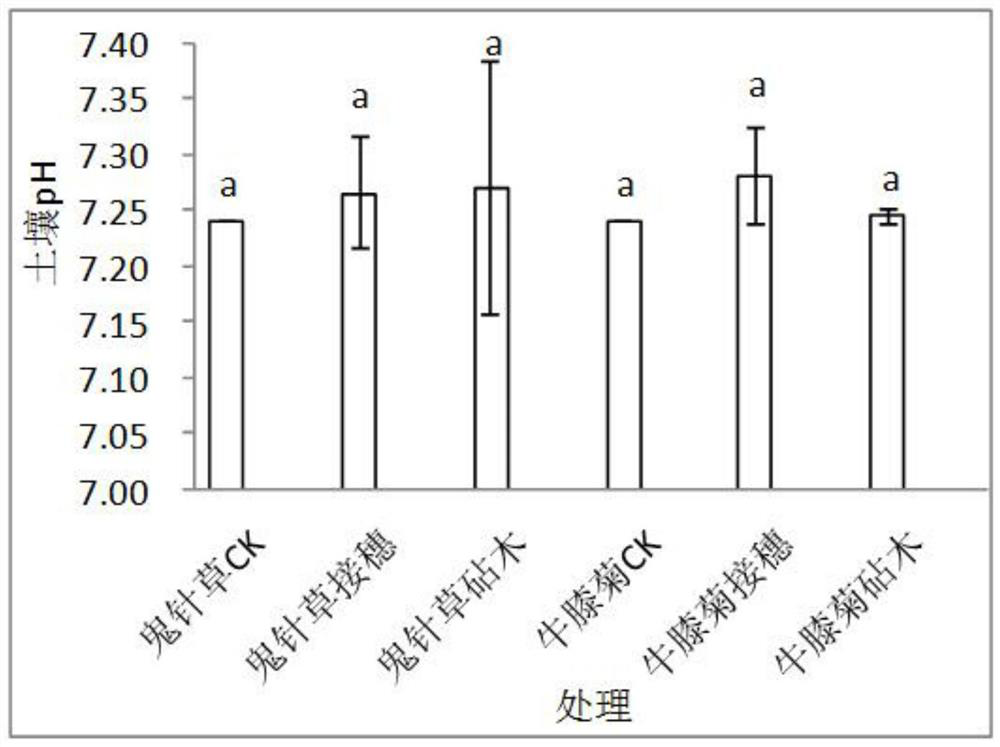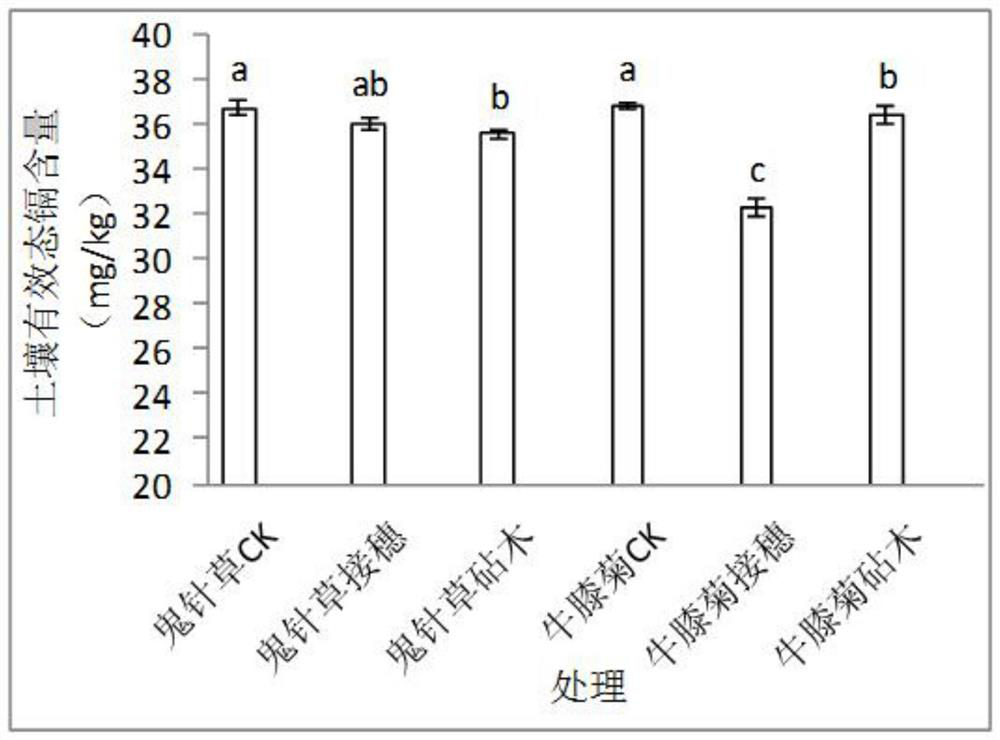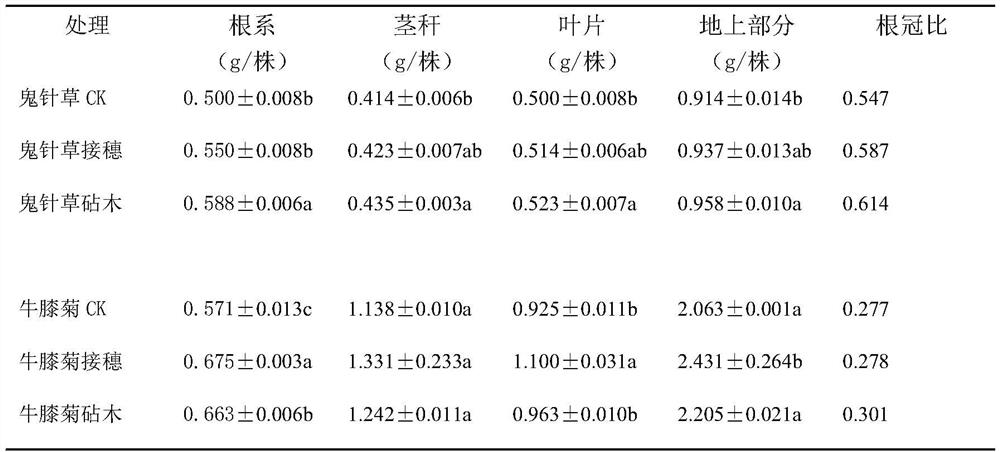The method of improving the remediation ability of hyssop offspring to cadmium pollution by grafting
A technology for cadmium pollution and cadmium-contaminated soil, applied in land restoration and agricultural fields, can solve problems such as slow growth, low repair efficiency, and short individuals, and achieve the effect of improving repair ability and promoting absorption and accumulation
- Summary
- Abstract
- Description
- Claims
- Application Information
AI Technical Summary
Problems solved by technology
Method used
Image
Examples
Embodiment 1
[0017] 1 Materials and methods
[0018] 1.1 Test material
[0019] In September 2013, the farm (farmland ecotype) of Ya'an Campus of Sichuan Agricultural University collected one plant of Pseudomonas auratus and Hyssopus chinensis with mature fruits, respectively collected the seeds, air-dried and preserved. In May 2014, the collected seeds of Hyssopus chinensis and Phyllostachys chinensis were sown and raised respectively, and grafting was started when the plant height was about 10cm. ), Hyssopus as the rootstock grafting, and the ghost needle grass as the rootstock grafting. Hyssopus chinensis without grafting (CK): The hyssopus seedlings are directly transplanted and planted, and the seeds are collected and stored. No-grafting (CK); the seedlings are directly transplanted and planted, and the seeds are collected and preserved. Hyssopus officinalis is grafted as rootstock; Hyssopus officinalis and Phyllostachys chinensis seedlings are respectively cut from about 6cm off t...
PUM
 Login to View More
Login to View More Abstract
Description
Claims
Application Information
 Login to View More
Login to View More - R&D
- Intellectual Property
- Life Sciences
- Materials
- Tech Scout
- Unparalleled Data Quality
- Higher Quality Content
- 60% Fewer Hallucinations
Browse by: Latest US Patents, China's latest patents, Technical Efficacy Thesaurus, Application Domain, Technology Topic, Popular Technical Reports.
© 2025 PatSnap. All rights reserved.Legal|Privacy policy|Modern Slavery Act Transparency Statement|Sitemap|About US| Contact US: help@patsnap.com



